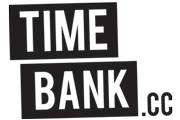
Events Search and Views Navigation
May 2011
time/bank: Workshop by Sue Ball and Sarah Spanton
Sue Ball and Sarah Spanton (of Leeds Creative Timebank) will explore the practice, concept, context and perceived benefits of establishing an art-specific timebank.
Find out more »time/bank: Symposium and launch
Stroom opens the Dutch branch of the e-flux Time/Bank, a platform and community for the cultural sector where goods and services can be exchanged without the use of money. This occasion is marked by a symposium on value creation, alternative economies and financing in the art world. The speakers are: Anton Vidokle and Julieta Aranda of e-flux Time/Bank; Sue Ball of Creative Time Bank Leeds; Mark Fisher, author of 'Capitalist Realism. Is there no alternative'; and Kilian Wawoe, former banker…
Find out more »time/bank: workshop Paul Glover
The American Paul Glover (1947) will give a workshop entitled 'Making Money: How to Start a Local Currency', an investigation of the system behind timebanking. In addition to giving information, the workshop will also function as a way to start a network. Anton Vidokle of e-flux Time/Bank will also be present to share his experience. Paul Glover is a visionary economist and community organizer. He is known as a radical and pragmatic thinker. He is an advocate of alternative economic…
Find out more »August 2011
time/bank workshop: Where does value come from?
We exchange, accumulate, and consume cash on a daily basis. The monetary note is an elementary corner-stone of our social existence. Where does the value of this social medium come from? Should the government have full control over the economic protocols that distribute and represent the value of labor and our daily exchanges? Can we envision a currency model that would better compensate for the ways in which we are exchanging, producing, and consuming in the service sectors? What would…
Find out more »September 2011
time/bank workshop: What is the good of wage?
An intensive workshop on alternative currency theory and practice A wage is the foundation of capitalist relations of production. It is the measuring stick by which the productive capacities of the worker are given value. Does the regime of wage as a predominant system through which value is distributed to a labor-force adequately measure your investment in the field of labor, however? How can a system that was developed for the productivity cycles of a factory and agricultural economy compensate…
Find out more »